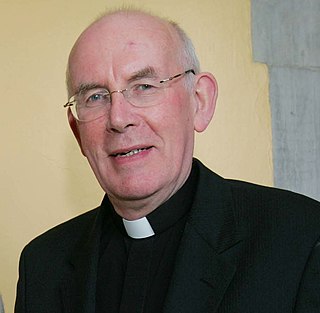A Quote by Carl Sagan
...the idea of a spiritual part of our nature that survives death, the notion of an afterlife, ought to be easy for religions and nations to sell. This is not an issue of which we might anticipate widespread skepticism. People will want to believe it, even if the evidence is meager to nil... compelling testimony ... provides that our personality, character, memory ... resides in the matter of the brain, it is easy not to focus on it, to find ways to evade the weight of the evidence.
Related Quotes
There exists a mountain of circumstantial evidence that consciousness survives bodily death. This is the kind of evidence that would stand up in a court of law. Some people believe that science needs better tools to quantify what consciousness is. Perhaps when we discover what consciousness is we will be on the road to providing absolute scientific evidence that there is life after death.
But what, after all, is faith? It is a state of mind that leads people to believe something - it doesn't matter what - in the total absence of supporting evidence. If there were good supporting evidence then faith would be superfluous, for the evidence would compel us to believe it anyway. It is this that makes the often-parroted claim that 'evolution itself is a matter of faith' so silly. People believe in evolution not because they arbitrarily want to believe it but because of overwhelming, publicly available evidence.
If we are uncritical we shall always find what we want: we shall look for, and find, confirmations, and we shall look away from, and not see, whatever might be dangerous to our pet theories. In this way it is only too easy to obtain what appears to be overwhelming evidence in favor of a theory which, if approached critically, would have been refuted.
What makes fantastic declarations believable is, in part, the vehemence with which they're proffered. Again, in the world of spirituality as well as of pop psychology, intensity of personal belief is evidence of truth. It is considered very bad form - even abuse - to challenge the veracity of any personal testimony that might be offered in a twelve-step group or on a talk show, unless the testimony itself is equivocal... Whatever sells, whatever many people believe strongly, must be true.
It was while I was studying philosophy that I came to understand. . . that it is no sign of moral or spiritual strength to believe that for which one has no evidence, neither a priori evidence as in math, nor a posteriori evidence as in science. . . . It's a violation almost immoral in its transgressiveness to shirk the responsibilities of rationality.
I believe in evidence. I believe in observation, measurement, and reasoning, confirmed by independent observers. I'll believe anything, no matter how wild and ridiculous, if there is evidence for it. The wilder and more ridiculous something is, however, the firmer and more solid the evidence will have to be.
Ireland and its people have much to be proud of. Yet every land and its people have moments of shame. Dealing with the failures of our past, as a country, as a Church, or as an individual is never easy. Our struggle to heal the wounds of decades of violence, injury and painful memory in Northern Ireland are more than ample evidence of this.
There is nothing in the nature of a miracle that should render it incredible:;: its credibility depends upon the nature of the evidence by which it is supported. An event of extreme probability will not necessarily command our belief unless upon a sufficiency of proof; and so an event which we may regard as highly improbable may command our belief if it is sustained by sufficient evidence. So that the credibility or incredibility of an event does not rest upon the nature of the event itself, but depends upon the nature and sufficiency of the proof which sustains it.
There exists in society a very special class of persons that I have always referred to as the Believers. These are folks who have chosen to accept a certain religion, philosophy, theory, idea or notion and cling to that belief regardless of any evidence that might, for anyone else, bring it into doubt. They are the ones who encourage and support the fanatics and the frauds of any given age. No amount of evidence, no matter how strong, will bring them any enlightenment. They are the sheep who beg to be fleeced and butchered, and who will battle fiercely to preserve their right to be victimized.
I do believe that the original sources of all religions should be taught, because with that we will find our similarities, not just our differences. I believe that if Mohammed, Buddha, Jesus, and Moses all got together they would be best of friends because the spiritual basis of all religions is something that builds unity.
There may be evidence the Russians are trying to tamper with elections. The Russians are trying to infiltrate everything we do, and they've succeeded. They've infiltrated Hollywood, they've infiltrated our universities, probably try to infiltrate elections by who knows what. But the idea that there is evidence that Putin was actively trying to elect Trump, there isn't a morsel of evidence for that, yet it shows up. The truth of the matter is that Putin doesn't care who runs the United States. It doesn't matter to him.
There are large numbers of people in India below the poverty line, there are large numbers of people who lead a meager existence. They want to find a little escape from the hardships of life, and come and watch something colorful and exciting and musical. Indian cinema provides that. So yes, the content of our television and our cinema is escapist in nature because we are there to provide entertainment.



































